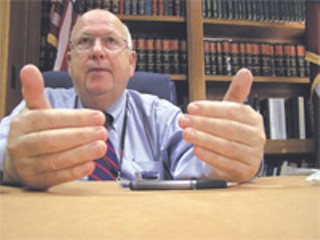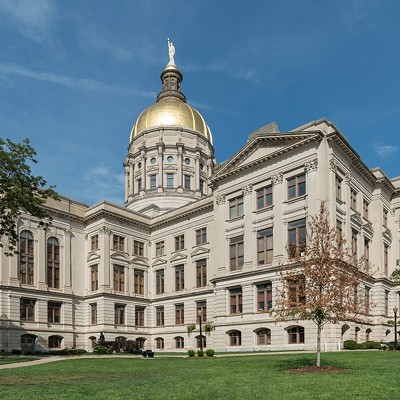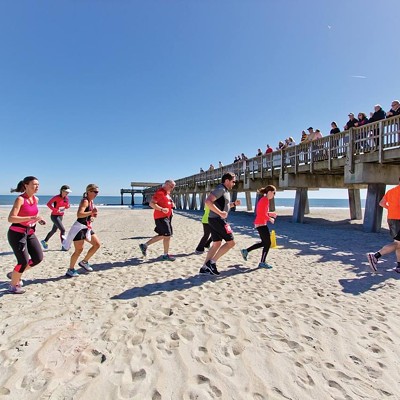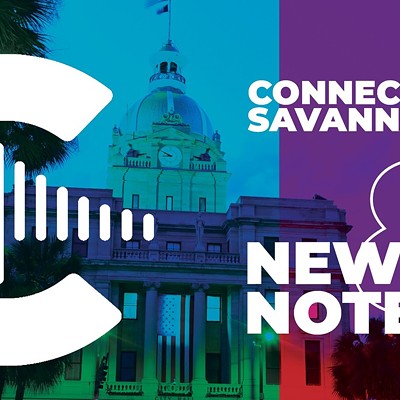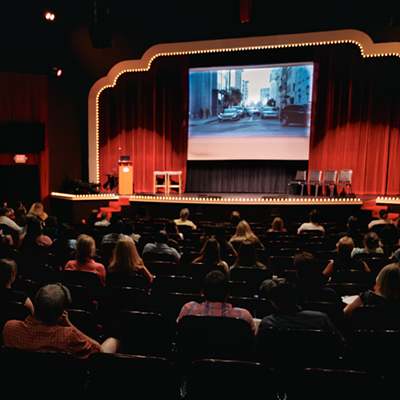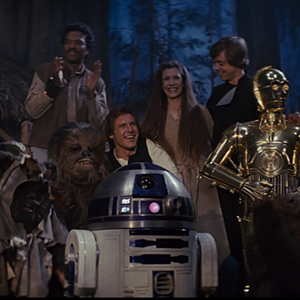GEORGIA SUPERIOR Court judges are elected officials! Wow... Who knew? I always thought they were appointed.
How does a citizen make an informed decision when voting for a judge? Is it a situation where you are simply forced to guess who is the lesser of two evils like our current presidential race? Do judges run as God Mongering Republicans or evil nonsense spewing Democrat/Socialist success haters? (They run as non-partisans since 1980).
I talked with Chief Judge Perry Brannen, Jr. of the Superior Court of Georgia, Eastern Judicial Circuit, First District. Judge Brannen and I spoke in his chambers before his workday began. It ended just a little over an hour later: Judge Brannen had a community dispute to resolve.
The last comment as the interview ended was C.S. Lewis’s theory from the Abolition of Man: “If you educate a society apart from the moral code, you end up with something that is sub-human.”
What does a Superior Court Judge do?
Judge Brannen: Judges do a lot! I think there’s a public misconception. The normal definition being that “I preside over trials.” I do that but I do so much more. The courts are really about what I’m going to call “dispute resolution.” We work to get disputes resolved, we decide motions, we decide points of law, we try to get people together, we have settlement conferences, we send people to the mediation center, and if necessary we try the case as a last resort.
What is your jurisdiction?
Judge Brannen: We have jurisdiction over all felony cases in this county. These are cases where a person can get a year or more in jail. We have unlimited civil jurisdiction, we have all of the family law jurisdiction in this county except for juveniles.
What is your case load?
Judge Brannen: We deal in a very high volume criminal prosecution system here. Our case load may be up 1,000 cases this year over last year. And there are only six of us that handle these cases. If it’s 3,600 then I have 600 felony cases a year.
Do you need more judges?
Judge Brannen: Georgia has about the highest percentage of its citizens in the penitentiary as any political entity on the planet. Including Russia, South Africa. Our case load here is about where it ought to be as compared to the state of Georgia.
The whole system in the state court is based on a system that moves cases into negotiated plea agreements. It has to be. The system cannot be designed to try felony cases, because if we try felony cases it takes two days, and if I have 600 of them to try in 365 days plus do everything else I do, the numbers don’t work.
What percentage of those indicted plead to a lesser crime? What percentage are found “not guilty”?
Judge Brannen: 95 percent of all cases plead out in this court. We don’t keep statistics so it’s hard to say how many plead out to lesser charges, but I’d say of those that plead, 10-12 percent plead to a lesser charge.
Of the five percent that don’t plead out initially and actually go to trial I’d say maybe 1 in 4 or 5 are found not guilty. But you see, the reason that is, is that they didn’t plead guilty in the first place because they didn’t think a case could be proved against them.
Or they weren’t guilty?
Judge Brannen: Or they weren’t guilty. Or they couldn’t prove it. Either way.
What gives you the right as a person, to sit in judgment of another human being?
Judge Brannen: I don’t judge people. It’s contrary to my beliefs. I don’t believe I have the right to judge anybody. And I would not do that. I have to apply the law. And I have to do it because somebody has to do it in a civilized society. I decide things that have to be decided in a civilized society
Now the jurors? They do sit in judgment of people, don’t they?
Judge Brannen: No. They find someone guilty or not guilty of violating the laws of the state. I don’t know how to say this: “Good people kill people.” And they have to be punished. So I don’t think they are really sitting in judgment in the sense that I understand it.
Or putting it another way, whether the state has proved beyond a reasonable doubt that a person has violated the laws of this state. And this has to be done, I think, to maintain a civilization.
Most people don’t hold lawyers in high regard. They do have however, very high regards for judges...
Judge Brannen: I’m glad you asked! I’m a lawyer. I’m not doing a lawyer’s job, I’m doing a judge’s job. But I’m a member of the state bar and I’m a lawyer in good standing.
The legal profession has a real public relations problem. And it’s fascinating because this is a profession, which its duty is to persuade people to come to a point of view! But the legal profession has done a very poor job of persuasion when it comes to presenting their case to the public. And they’re basically too busy, I think to worry about it.
There was a time where law was considered to be something of value maybe like philosophy, maybe like science, maybe like medicine. It was a legitimate study and law was based on universal principles. Whether these principles were found in the 10 Commandments or whatever Judeo-Christian tradition, or wherever else there was some basis, bedrock foundations the law stood on.
That’s no longer believed. Law now is considered a matter of personal opinion. And it has to do with our whole world view as to what’s important and what’s not. It’s a paradigm shift on how we see reality. And I think it impacts the field of law much greater than people realize. cs

